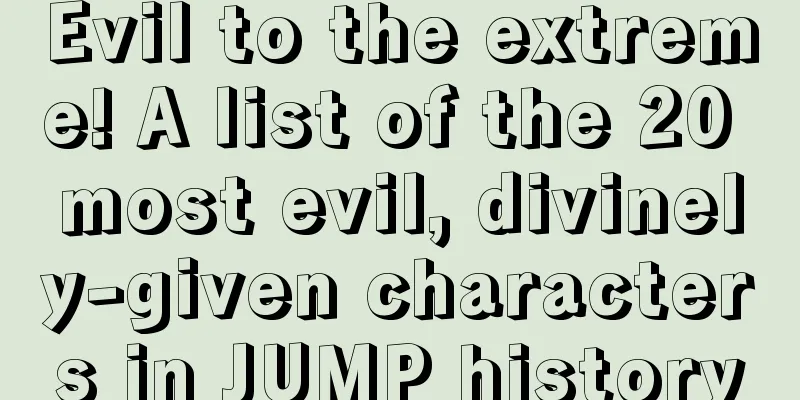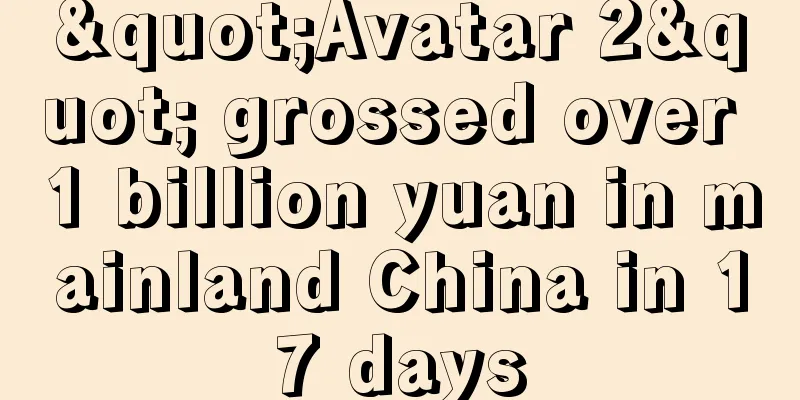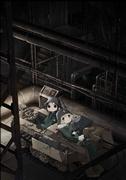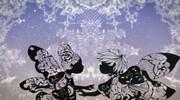Owarimonogatari: Evaluation and impressions as the culmination of the Monogatari series
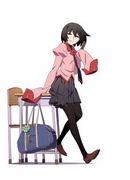
Owarimonogatari: The culmination of the Monogatari series and its appealOwarimonogatari is the seventh installment of the Monogatari series by Nisio Isin, and can be considered the culmination of the series. It was broadcast on TOKYO MX and BS11 from October 4th to December 25th, 2015, with a total of 12 episodes in 30-minute slots. It is based on Nisio Isin's novel Owarimonogatari, animated by Shaft, and directed by Akiyuki Shimbo. It is produced by Aniplex, Kodansha, and Shaft, and the copyright belongs to Nisio Isin/Kodansha, Aniplex, and Shaft. Summary of the story"Owarimonogatari" depicts the story of Araragi Koyomi and the characters around him. In particular, it focuses on the growth of Araragi's sisters Karen and Tsukihi, and on Koyomi's own struggle to confront his past. The story is broadly divided into three parts, each with a different theme and depicting the growth of the characters. Part 1: Fan FormulaThe first part, "Ougi Formula," depicts Koyomi facing the trauma of his past. He reunites with Hitagi Senjougahara, who once helped him, and with her help, he faces his past mistakes. This part depicts Koyomi's inner conflict and growth, deeply moving the viewer. Part 2: Riddles of GrowthIn the second part, "Sodate Riddle," the past of Ooba Shinobu, a classmate of Koyomi, is revealed. Shinobu once plotted revenge against her friends who had betrayed her, but with Koyomi's help, she was able to heal her emotional wounds. This part depicts themes of friendship and betrayal, deeply moving the viewer. Part 3: Lost GrowthIn the third part, "Sodate Lost," Shinobu's revenge is completed and her emotional wounds are healed. With Koyomi's help, Shinobu overcomes her past and begins a new life. This part depicts themes of growth and rebirth, deeply moving the viewer. Character AppealMany fascinating characters appear in "Owarimonogatari." In particular, Araragi Koyomi, Senjougahara Hitagi, and Ohba Shinobu are central characters in the story, and their growth and conflicts are depicted. Araragi CalendarAraragi Koyomi is the protagonist of the story and a character who grows as he faces the trauma of his past. He is portrayed admitting his mistakes and taking action to help others, deeply moving viewers. Koyomi's growth symbolizes the theme of the story, "growth and rebirth." Hitagi SenjougaharaSenjougahara Hitagi is Koyomi's lover and an important character who supports him. She overcomes the trauma of her past and grows together with Koyomi, deeply moving viewers. Hitagi's growth symbolizes the theme of the story, "friendship and betrayal." Shinobu OhbaOoba Shinobu is a classmate of Koyomi and a character who grows as she faces the trauma of her past. She overcomes her past and begins a new life, deeply moving viewers. Shinobu's growth symbolizes the theme of the story, "growth and rebirth." The charm of animationThe animation of "Owarimonogatari" is characterized by Shaft's unique style. In particular, the characters' expressions and movements are drawn in detail, deeply moving the viewer. In addition, the backgrounds and colors are beautiful, enhancing the atmosphere of the story. Character DesignThe character designs are characterized by Shaft's unique style. In particular, the characters' expressions and movements are drawn in detail, deeply moving the viewer. For example, Koyomi's facial expressions express his inner conflict, deeply moving the viewer. Hitagi's facial expressions also express the trauma of her past, deeply moving the viewer. Background and colorsThe backgrounds and colors are also beautiful, enhancing the atmosphere of the story. In particular, in the first part, "Ougi Formula," dark tones are used to express the trauma of Koyomi's past. In the second part, "Sodate Riddle," bright tones are used to express the trauma of Shinobu's past. These backgrounds and colors enhance the theme of the story and leave a deep impression on the viewer. The appeal of musicThe music for "Owarimonogatari" was composed by Satoru Kanzaki. In particular, the opening theme "decent black" and the ending theme "mein schatz" bring out the theme of the story and deeply move the viewer. The background music is also beautiful, bringing out the atmosphere of the story. OP theme "decent black"The opening theme "Decent Black" expresses Koyomi's struggle to face the trauma of his past. In particular, the lyrics' message of "overcoming your past self and living as a new you" symbolizes the story's theme of "growth and rebirth." The melody is also beautiful, deeply moving to the viewer. Ending theme "mein schatz"The ending theme "Mein Schatz" expresses Shinobu's struggle to face the trauma of her past. In particular, the lyrics' message of "overcoming your past self and living a new life" symbolizes the story's theme of "growth and rebirth." The melody is also beautiful, deeply moving to the viewer. Background MusicThe background music is also beautiful and enhances the atmosphere of the story. In particular, in the first part, "Ougi Formula," dark-toned background music is used to express Koyomi's past trauma. In the second part, "Sodate Riddle," bright-toned background music is used to express Shinobu's past trauma. These background music pieces enhance the theme of the story and leave viewers with deep emotions. Ratings and RecommendationsOwarimonogatari has been highly praised as the culmination of the Monogatari series. It has been particularly praised for the way it depicts the characters' growth and struggles, deeply moving viewers. The animation and music are also beautiful, enhancing the atmosphere of the story. evaluationOwarimonogatari has been highly praised as the culmination of the Monogatari series. It has been particularly praised for its portrayal of character growth and conflict, deeply moving viewers. The animation and music are also beautiful, enhancing the atmosphere of the story. Many viewers have called it "the best work of the Monogatari series." Recommendation"Owarimonogatari" is recommended not only for fans of the Monogatari series, but also for those who are experiencing the series for the first time. In particular, it has been praised for its depiction of character growth and conflict, deeply moving viewers. The animation and music are also beautiful, enhancing the atmosphere of the story. It is recommended not only for fans of the Monogatari series, but also for those who are experiencing the series for the first time. summaryOwarimonogatari has been highly praised as the culmination of the Monogatari series. It has been particularly praised for the way it depicts the characters' growth and conflicts, deeply moving viewers. The animation and music are also beautiful, enhancing the atmosphere of the story. It is recommended not only for fans of the Monogatari series, but also for those who are experiencing the series for the first time. |
<<: The appeal and reviews of "Concrete Revolutio: Choujin Gensou": A must-see superhero anime
>>: The appeal and reviews of "Komori-san Can't Refuse!": A work that is definitely recommended
Recommend
Jackie Chan: I have been in the industry for 60 years and have worked hard for 60 years. I still want to continue
The action film "Vanguard" directed by ...
Disney's new remake of "Dumbo" has a new poster that looks like the Rising Sun Flag, sparking strong dissatisfaction among netizens
On the 14th, Disney Studios released the latest p...
The Promised Neverland Season 2 Review: Exceeding Expectations and Character Growth
The Promised Neverland Season 2 - Deepening myste...
Bandai releases a variety of new Gundam Build Divers products in the new Gunpla product line for January 2020
January 6th is the day when major game manufactur...
Jay Chou posted an old photo of the movie "Initial D" 14 years ago: My first movie
As the king of Chinese music, Jay Chou ended his ...
Director Gao Qunshu's new criminal investigation film "Trident" released its first trailer, with many veteran actors starring in it
The first trailer of the movie "Trident"...
The appeal and reviews of the Shojo☆Kageki Revue Starlight OVA: A must-see special edition for fans
"Shoujo☆Kageki Revue Starlight OVA" - A...
Tiancha releases the latest stills of "Wonka" and will be officially released in March 2023
Today (October 11), actor Timothée Chalamet poste...
Tencent remakes "My Fair Princess" actors must be over 18 years old and good looking
According to Sina Entertainment, the third versio...
The movie "Mr. Red Carpet" has been rescheduled to be released on March 15
According to Fast Technology on March 4, the movi...
Stephen Chow and Cecilia Cheung appeared together for the first time in a long time, recreating classic scenes from "The King of Comedy" and bringing netizens to tears!
Today (January 15), some media shared a promotion...
The appeal and reviews of Akazukin Chacha OVA: Rediscovering a hidden masterpiece
Akazukin Chacha OVA - A special and fascinating e...
"Venom: Let There Be Carnage" new Chinese trailer shows new abilities in the fight
Recently, a new trailer for the movie "Venom...
The new PV of the animation "Heavenly Kingdom Demon Realm" is released and will be broadcast on April 1st
The official animation of "Heaven and Earth&...
Tarzan's Undersea Journey: A Fascinating Ocean Adventure Review and Rating
Tarchan's Undersea Journey - Tarchan's Un...
